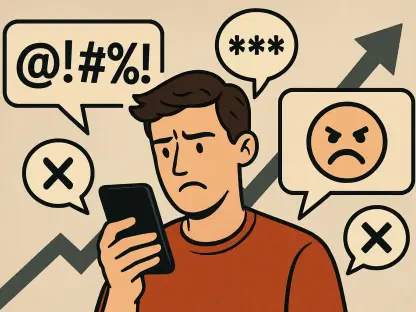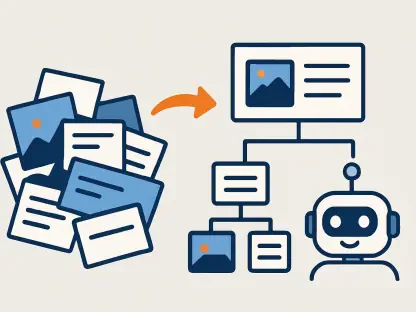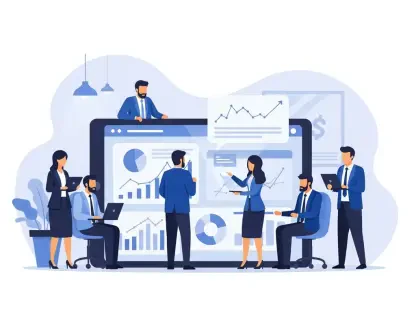As Apple gears up for the release of iOS 17, significant changes are expected that will reshape its software ecosystem. This transformation is largely driven by regulatory demands from the European Union (EU), compelling Apple to adopt practices it had previously resisted. These changes promise to bring both opportunities and challenges for users, developers, and Apple itself, in an unfolding scenario that industry observers are keenly watching.
The Push for Sideloading in iOS 17
Compliance with the EU’s Digital Markets Act
Recent developments highlight Apple’s need to comply with the EU’s Digital Markets Act (DMA). The DMA aims to reduce the dominance of “gatekeeper” companies like Apple by demanding more open and competitive practices. For Apple, this means allowing app sideloading, a practice that enables users to download and install apps from sources outside the Apple App Store. This seismic shift is not just about expanded choices for consumers but also about adhering to legal mandates designed to break down monopolistic structures.
Apple’s compliance with the DMA signals a significant shift in its business strategy, driven by the necessity to avoid hefty fines. These fines could amount to as much as 20% of Apple’s global revenue, making adherence non-negotiable. Historically, Apple has guarded its App Store policies zealously, citing security and user privacy as primary reasons. However, the DMA forces the company to rethink its approach, balancing regulatory demands with its long-standing emphasis on maintaining a secure user environment.
Apple’s Historical Stance on Sideloading
Apple has historically opposed sideloading, citing the security risks associated with it. According to Apple, sideloading could open the floodgates to malware, scams, and other malicious activities that their stringent App Store policies typically keep at bay. Despite these reservations, the regulatory pressure from the EU leaves Apple with limited options. The company has argued that its closed ecosystem is fundamental to providing a secure, seamless user experience, a sentiment echoed by many of its users.
However, as the EU’s stance on monopolistic practices becomes more assertive, Apple must find ways to integrate sideloading into its ecosystem without compromising on security. This change is expected to be one of the most significant in Apple’s recent history, marking a departure from a model that has not only allowed it to control app quality but also generated substantial revenue. Analysts suggest that while Apple’s hand is being forced, the company will seek to implement safeguards to mitigate the potential risks associated with sideloading.
Implications for Users
Enhanced Flexibility and Choice
With iOS 17 launching sideloading support, users will have greater flexibility in their app choices. They will no longer be confined to the offerings within the Apple App Store. This change could benefit users looking for apps that haven’t made it through Apple’s rigorous approval process or prefer to source their apps independently. In many ways, this flexibility democratizes app distribution, allowing developers to reach consumers directly without navigating the App Store’s complex approval system.
However, while increased flexibility is generally seen as positive, it comes with caveats. Users will need to exercise more caution when downloading apps from unofficial sources. Apple’s current ecosystem is designed to shield users from subpar or malicious software, an assurance that may be diluted with the advent of sideloading. As a result, users may need to rely more heavily on third-party security solutions or become more tech-savvy to distinguish between safe and harmful applications.
Balancing Security Concerns
However, this newfound flexibility comes with potential security risks. Downloading apps from unofficial sources increases the likelihood of encountering malware and other security breaches. Apple’s traditional emphasis on security and privacy is at stake, and the company may need to implement additional safeguards or warnings for sideloading apps. This balancing act is critical; Apple will likely introduce measures such as additional permissions, warnings, and perhaps even verification layers to ensure that users are aware of the risks involved.
The challenge for Apple will be to maintain its reputation for security in this new, less controlled environment. Research suggests that when companies relax such controls, they often see an uptick in security incidents. Therefore, Apple’s approach to sideloading will need to be nuanced and carefully implemented to reassure users without compromising their freedom to choose where they source their apps. This dual focus on providing flexibility while ensuring security will be a challenging but necessary aspect of iOS 17.
Impact on Developers
Reduction in Apple’s Commission Fees
For developers, sideloading presents an opportunity to bypass Apple’s substantial commission fees, which can be as high as 30% for app sales and in-app purchases. This could potentially lead to increased revenue for developers, particularly smaller entities who feel burdened by these fees. By allowing sideloading, Apple may unintentionally open up new avenues for innovation and competition among developers who previously found the App Store’s constraints stifling.
Developers who have long complained about Apple’s commission structure will likely welcome this change. However, bypassing Apple’s fees comes with its own set of challenges. Developers will need to create their own distribution channels, handle payment processing, and manage security issues independently. This newfound freedom comes with the responsibility of ensuring that their applications remain safe and user-friendly, tasks that were previously managed by Apple’s infrastructure.
Verification Processes and Associated Costs
Despite the apparent benefits, Apple may institute new verification processes for sideloaded apps to maintain a semblance of security. These processes might come with verification fees, creating a new financial consideration for developers who choose to sideload their apps outside the App Store ecosystem. While the initial narrative may focus on the avoidance of Apple’s traditional commission fees, developers should be prepared for the possibility of new costs associated with ensuring their apps meet Apple’s security standards.
Further complicating matters is the potential difference in standards between apps on the App Store and those sideloaded. Apple’s verification processes for sideloaded apps may be less rigorous, leading to variability in app quality and security. Developers may find themselves in a competitive landscape where they must weigh the benefits of reduced fees against the potential risks of operating outside the established App Store environment. This dynamic could foster a new competitive atmosphere but also introduce a slew of operational challenges for developers big and small.
The Broader Impact of the Digital Markets Act
Other Tech Giants Under Scrutiny
The DMA does not solely target Apple; it also affects other major tech companies like Google, Meta, and Amazon. These companies will also need to adapt their platforms and services in response to the DMA’s requirements, fostering a more open digital marketplace. By compelling these industry leaders to change their practices, the DMA aims to break down barriers that have historically favored these tech giants over smaller competitors.
For instance, just as Apple must allow sideloading, Google may have to open Android’s payment systems to third-party developers, and Meta could face similar demands regarding its advertising ecosystem. The broader implication is a tech landscape that is more inclusive and less dominated by a few key players. However, the transition is likely to be complex and fraught with both opportunities and risks as these companies navigate new regulatory terrains. The DMA’s broader impact will likely lead to significant changes in how users interact with digital platforms across the board.
Beyond Sideloading: Integration of Services
Under the DMA, Apple might also need to open up other services such as Messages, FaceTime, and Siri to third-party developers and applications. This integration could significantly alter the user experience on iOS devices and may redefine Apple’s traditionally closed ecosystem. The potential opening of these services could pave the way for innovative uses of Apple’s hardware and software, but it also introduces questions about how these integrations will be managed and secured.
Opening services like Messages and FaceTime could lead to a surge in third-party applications designed to work within Apple’s ecosystem, offering functionalities not originally intended by Apple. While this could benefit users by providing more diverse and tailored app experiences, it also complicates Apple’s ability to ensure a consistent, secure, and high-quality user experience. As Apple adjusts to these broader DMA requirements, it will need to carefully consider how to balance openness with its commitment to user security and privacy—principles that have long been central to its brand.
Apple’s Position and Strategic Adaptation
Navigating Regulatory Challenges
Facing potential fines that could reach up to 20% of their global revenue, compliance with the DMA is not optional for Apple. The company’s strategic adaptation involves balancing regulatory demands with its core principles of security and user privacy. Navigating these regulatory challenges will require Apple to innovate in ways that align with both its corporate values and legal obligations. Ultimately, the success of these adaptations will hinge on Apple’s ability to maintain user trust while embracing a more open app ecosystem.
Apple’s pivot towards compliance involves more than just technical adaptations; it requires a shift in corporate mindset. Traditionally, Apple has been able to operate largely on its own terms, defining the rules of engagement for all stakeholders in its ecosystem. The DMA changes this dynamic, introducing new layers of accountability and external oversight. Apple’s challenge will be to incorporate these elements without losing the essence of what makes its ecosystem unique—security, privacy, and an unparalleled user experience.
Future Directions and Speculations
As Apple prepares for the launch of iOS 17, significant changes are on the horizon that will transform its software ecosystem. This major shift is largely driven by regulatory requirements from the European Union (EU), pushing Apple to implement practices it had previously avoided. These forthcoming adjustments promise to introduce both exciting opportunities and notable challenges for users, developers, and Apple itself. The EU’s regulatory demands are aimed at fostering greater competition and innovation in the tech industry, which means Apple will need to adapt its strategies and possibly open up its system more than ever before. For users, this could mean greater flexibility and new features, but also potential disruptions as they get used to the changes. Developers might find themselves navigating a more open but complex environment, which could lead to both creative new apps and unforeseen issues. As the tech community closely monitors these developments, the release of iOS 17 stands to be a pivotal moment for Apple, sparking widespread interest and speculation about the future of its ecosystem.









